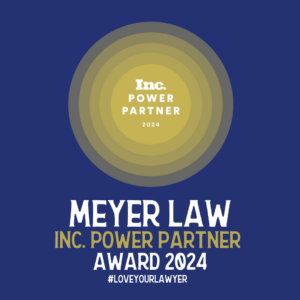Starting a business of your own brings with it feelings of excitement, exhilaration, and accomplishment. Of course, it’s natural to feel some trepidation and anxiety as well. What should you do first? How do you make sure things are set up correctly? How do you protect yourself? These are all valid concerns and important questions to ask. Fortunately, you have come to the right place! In this article we outline the five things you must know, and do, when first starting your business.
1. Set Up An Entity
Simply put, an entity is the organizational structure that you set up to conduct business. Examples of business entities include sole proprietorship, partnership, corporation, and limited liability company (LLC).
Choosing an entity for your business is a very important decision. The entity type you select not only determines the business organizational structure, but also how the business will be taxed and the level of liability protection you will have.
There are pros and cons for each entity type. For example, while a sole proprietorship is simple to set up, and involves lower costs overall, it provides no business liability protection for your personal assets.
2. Protect Your Confidential Information
You undoubtedly put a great deal of time, effort, and money into developing your fantastic new product or unique service idea. What if someone you shared the idea with took it to market before you did? Without taking the proper steps to protect your idea, this could happen.
Before you share your confidential information with anyone, you need to have a solid non-disclosure agreement (NDA) in place, and have the person(s) you are sharing information with sign it.
Some people worry that asking a person, especially someone they know, to sign such an agreement may offend them. Any reasonable person will understand the business necessity for this. If someone objects to signing your NDA, perhaps they are not the best person to discuss your new idea with.
3. Make Sure You Own The Intellectual Property You Think You Own
If you are having a third party develop an intellectual property for your business (logo, tagline, website, etc.) make sure that your company owns the rights to that intellectual property.
You need a solid contract that should include, among other things, wording stating that you are the sole owner of the intellectual property created. It is also important to understand whether the third party is incorporating any other intellectual property into what they are creating for you.
With regard to websites, it is important that you register the domain name of your business yourself. Do not let the designer or developer do it for you, even if it sounds convenient. There have been cases where a business had a website developer register their domain, only to realize later that the developer had ownership, and control, to the key component of their online brand! Don’t let this happen to you – always register your domain name yourself.
4. Have A Founders’ Agreement In Place If You Are Starting The Business With Anyone Else
If you are starting a business and will have one or more partners, it is important to have a founders’ agreement in place.
A founders’ agreement ensures everyone is on the same page from the start. It will clearly define the roles, responsibilities, and rights for each owner of the business. It also can stipulate how disputes will be resolved, how existing partners exit the business, and how new partners are brought in.
The excitement of starting a new business, with the focus on building forward momentum, often causes business owners to overlook this crucial startup step. Don’t skip it. Circumstances can change, and often do. A well-drafted founders’ agreement can prevent a great experience from turning messy, or even ugly.
5. Make Sure You Have Solid Contracts In Place
This seems like a no-brainer, but in working with thousands of companies, we can’t tell you how many times we’ve seen the costly consequences of poorly drafted contracts. And those costs can be huge.
People often try to save money by creating their own contracts. If you want to save money with a do-it-yourself project, start with a small scale home improvement. At least there, if you mess up, you can cover the flaws with a coat of paint, or a well-placed piece of furniture. Flaws in your business contracts are not so easily remedied, and could have disastrous consequences.
At the very least, have a good business lawyer look over your self-drafted contracts. Better yet, have the lawyer create your contracts for you. The peace of mind knowing they were done correctly will be well worth it!
In future articles we will cover each of these key points in greater detail. For now, use this article as a checklist for the five key things you must do to start your business off right, and give you the best chance for long-term success.
If you need assistance setting up your new business, please schedule a consultation with one of our experienced business attorneys. We are always here to help! We will make sure you are protected, and reduce the worry about the “what-ifs”, so you can focus on what matters most – running your business.

Tricia Meyer is Founder + Managing Attorney of Meyer Law, one of the fastest growing law firms in the United States. Meyer helps entrepreneurs and technology companies from startups to large corporations with day-to-day matters and notable clients include companies that have appeared on Shark Tank to companies gracing the Inc. 500 to some of the largest companies in the world.
Tricia has been named on the Forbes Next 1000 list, is one of the Most Influential Female Lawyers in Chicago according to Crain’s Chicago Business and been recognized as a top 10 technology lawyer.
As an entrepreneur and a lawyer, Meyer has a unique perspective and has mentored thousands of startups and scaling companies at tech incubators and accelerators across the United States such as 1871, WeWork Labs and Techstars. Tricia has been featured in Inc., Crain’s, Chicago Tribune, NBC Chicago, American Express OPEN Forum, and more. Learn more at www.MeetMeyerLaw.com and follow Meyer Law’s story on Instagram @loveyourlawyer.





